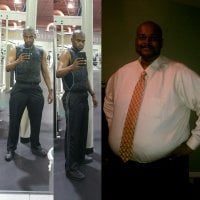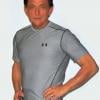Search the Community
Showing results for 'alcohol'.
Found 17,501 results
-
Re: Sleeve. You may want to do some research on another board for the pro's and con's of this type of weightloss surgery. As far as sweets go, we CAN have them. But its usually the evil that got us into this situation to begin with... so thats why we are told NOT to have sweets. Alcohol ~ this is a stomach irritant. ANY alcohol (wine included) burns my stomach, so I avoid all alcohol. :phanvan The carbonated part (like beer) is something else to deal with. MOST bandsters totally stay away from all carbonation - it causes excessive burping --- VERY uncomfortable feeling. oh, and white items (like bread and pasta) are usually restricted form our diets because these things seems to stick to the band while passing through - thus creating a 'stuck' feeling. not a pleasent experience. But we look at these restricted foods as a good thing (white items are loaded with carbs and turn to sugar once consumed). Something else that comes to mind as far as restricted items go is ANSAID medications: ibuprophen. This is also a stomach irritant and should be avoided by bandsters. There's tons of LapBand info around here. LBT is loaded with facts of everyday living with the band. Good and bad. So, Happy reading! And if you have any other questions, just ask!
-
How long ago did you have your surgery? My program doesn’t have any restrictions on alcohol (which I don’t know that I agree with). Anyway, you do want to be careful - your new tummy is sensitive, you’ll feel tipsy or drunk a lot quicker, there are a lot of empty calories and (most disturbing to me) there are certain studies that have shown post WLS patients can have a higher tendency for alcohol dependence. Addiction runs in my extended family, so that is something I’m going to be careful and mindful of. I’d give it at least a couple months and then start with something easier on the stomach. I don’t even know what that would be - red wine ?
-
Have I become a picky eater??? YOU BET!!! And I am loving every minute of it! Before Lap band surgery, I was a disgusting fat gluttonous pig with one foot in the grave...diabetic, one heart attack resulting in cardiac surgery....I would eat anything and everything put before me, then finish whatever was left on my wife's plate But after Lap band surgery, I have NO hunger, NO cravings...I have NO interest in food or eating in general....I have gone full days and have forgotten to sit down AND EAT.... At times, I can stare at a menu and not find anything that interests me. I can wander around a grocery store and not find anything to bring home for dinner. My Tastes have changed dramatically...things I used to crave have no flavor anymore. Because of the band, there are foods I had to give up...I don't eat meat, things made from flour such as breads and Pasta, no longer eat rice, nothing deep fried.... Not only is my hunger and cravings limited, but My portion sizes are very small because of the band. So when I do eat, I have to make the best of what I can...the most nutritious, healthiest choices I can make...don't want to blow that opportunity on something bad. So I have become a very "picky health nut" Always looking for the most nutritious,healthiest, all natural, organic, non processed and high Protein foods I can Am I Picky??? YOU BET! I go to the gym every chance I get....usually at 5-6am where I run 5 miles, then do weights. I have NO BODY FAT left! (or very little)...It is not my goal, but my bodies decision to stop where it is the most healthiest - normal. I have not felt better, been healthier, in over 35 years...all because being very "Picky" thanks to this WLS... I have friends, read magazine articles, advertisements etc, where people find this lifestyle very "Chic" and they work hard to try to live it everyday....for me, it all became easy and fell into place because of my Lap Band surgery... As a disclaimer.....on top of it all, since I am no longer dieting or have fear of gaining any weight back...I still enjoy life's little pleasures....we will go out and get a Ice Cream Sundae with all the toppings at least twice a week....I do not hold back on alcohol....I enjoy a good beer with my friends from time to time.... In other words...food does not scare me.... I Love this new life! Call me picky...I LOVE IT! It beats the alternative....
-
That depends on your overall history. How long have you been overweight, by how much, and what have you tried so far? If you've only been this heavy a few years, I would strongly encourage you to try other things first, or if your BMI is less than 40. OTOH, if you've been on multiple diets, have been significantly overweight since childhood, then this might be an excellent opportunity for you. No healthy eating plan, with or without WLS, is going to say going out drinking frequently is a good thing. Most healthy plans allow things like that once you reach goal, occasionally, but that's not what my college days were like LOL! You do say you're tired of wasting your life being unhealthy, but I believe you have no co-morbidities yet, right? So who says you are unhealthy? You may be very different from me, but when I was that age, it was all about looking good, not health. And while I'm not judging you at all for that, it's understandable, but it can definitely affect your commitment to something this huge. I really don't think I was emotionally mature enough then to really take on something lifelong. Maybe you could commit to trying 3-6 months of low carb, high Protein meals, without the very low calorie counts and portion sizes required by WLS, to see how committed you could be with this. If you do something like Atkins, you can also eat high fat and it keeps you full, while still losing weight due to the extremely low carbs. I was successful at that several years ago, but could not sustain it longer than 8 months in the end. So even I am worried about how I will do post-op, just counting on the hope of not wanting sweets and possible dumping. I've been overweight my entire life, and was getting close to 200's about three years ago (making me still 60-70 lbs overweight for my height/bone structure) with a BMI of 32-34 at that time. Im now 267 lbs putting my BMI at 40-41. I don't take offense easily so no worries there and I appreciate your advice. I tried montignac for a year about 5 years ago, atkins for about 6-8 months about 4 years ago, nutrisystem for 2-3 months 2 years ago (only a short time because 1 i couldn't afford 300 dollars a month for it, and 2 I gained 15 lbs the first month and another 10 lbs the second month despite following the plan to a T) Plus other methods that I had heard about from one source or another. But i've never been able to keep the weight off, and I thankfully don't lack conviction. But I want to be healthy. I don't care what others think of me, I care what I think of myself. I don't want to be skinny, I want to be able to walk around with my friends and not feel dizzy and winded like im going to pass out. I want to dance without feeling disgusting like I don't have a right to do so and without any of the above mentioned things. I have contemplated surgery for the last 2 years and finally decided to go for it when it occurred to me that I couldn't breathe when i bent down to tie my shoes, and when I realized that I weigh less than 100lbs less than my 47 y/o mom who is morbidly obese with sleep apnea and a slew of other things. It was a slap in the face that said if i didnt do something soon then i would be looking at my not so distant future. Like she was my reflection only id get it 20 years earlier, because her and I have very similar stats. Needless to say I cracked amd cried like a baby. She is 5'7" and weighs 360, i'm 5'6" and weigh 267. That is entirely too close for comfort, and I want to be better. P.S TO ALL: I'm not really in to alcohol, and didn't realize that a lot of people turn to alcohol to replace food after surgery. So if that could be cleared up that would be cool haha thank you
-
I think you are wise to be "worrying" about these things. It means you are considering the long-term consequences of the surgery and not deciding impulsively, which is commendable for a 20-year-old! Life will definitely be different for you than someone who doesn't have WLS. You will miss out on crazy nights of drinking 28 shots (I wouldn't recommend it anyway!) or drinking 12 beers while gambling all day in a casino in Vegas. I've had alcohol a couple of times now post-op (I'm six months out). And my experience is that I get drunk on VERY LITTLE alcohol now. Like one drink and I am sloppy drunk. However, I seem to sober up a lot faster than I used to too. What I would be concerned about at your age if you do drink post WLS is making sure you are doing it in a safe environment and are not in a position to have to drive. Because you will get drunk on so very little alcohol, it would be easy for you to get to a level where you are very impaired and could be taken advantage of. And I wouldn't trust any of the normal "rules" about when it's safe to drive. You should make a rule for yourself right now that if you have ANY alcohol at all, you shouldn't drive, period. It would just be far too difficult to judge how much alcohol would put you over the legal limit and how long afterward it would take for you to fall back below the legal limit. Be safe!
-


Foods that make you poop...
newat52 replied to MK1986's topic in Tell Your Weight Loss Surgery Story
Sugar alcohols will do it, and not in a good way. That being said, I have a confession to make. A few years back while I still was still working, I used to keep a jar of jelly Beans on my desk. This one man that worked in the office was not only a jerk but pretty much cleaned out my jar each week. I enjoyed people helping them selves but most people would take a few but this guy would take huge handfuls and put some in his shirt pocket for later.I let him know one time that he was welcome to bring in a bag every once in a while to fill the kitty. He looked at me and said "why would I do that when you will do it?" Wrong thing to say to me. Next day, I went and bought 3 bags of the sugarfree jelly belly beans. It says on the bag not to eat more than a few because of the of the high content of sugar alcohols in them. He was all over them by 9am. I made sure I got up and left my desk area when I saw him coming. The warning on the bag is true. That's all I'm saying. To add to my delight, I let him know after the fact that those were sugarfree. He never ate another one of my jellybeans. -


It cant be lactose - can it be sweetners causing my stomach upset?
Matt Z replied to Separ1418's topic in Pre-op Diets and Questions
Some folks have issues with certain sweeteners and sugar alcohols. Could totally be that, still could be the lactose, maybe double a dose of the lactaid and see? Do you typically have issues with whole milk or ice creams? -


Making the surgery choice, which one?
ms.sss replied to catlover12's topic in Gastric Bypass Surgery Forums
Alot of folks already said more or less the same thing, but I'll throw in my 2 cents anyway: I chose sleeve because: I was afraid of dumping (but...I dump anyway) I wanted to continue using NSAIDs (but...I ended up not needing them anymore anyway) I was personally freaked out a bit by the re-routing of my intestines (but...not cutting out my stomach? lol) I DID NOT have GERD. I only had a choice between sleeve and bypass cuz those were the only ones covered by my insurance, so I didn't consider any other procedure. I think that one's results with WLS has more to do with the person, than with the type of surgery. I'm convinced I would have had the same result if I had the bypass. But that's just me. Some background and current statuses: I'm 5'2", almost 50yr old female, started off at 235 lbs at the beginning of my 2 week pre-op diet...2.5 years ago. I got to goal of 127 lbs in 7 months (108 lbs lost at that time). I settled into 115 lbs by 10 months post-op and stayed there basically since...but not without a bit of effort on my part. 3 times I got up to 120 lbs for a few consecutive days, and subsequently made efforts to get back down to 115. And 4-5 times I went sub-110 lbs for a few consecutive days, but didn't have to make any effort at all to get back to 115, go figure. This morning I was 109.2 lbs. I consumed very little calories during weight loss phase, and exercised regularly starting month 3 (running/walking mostly, and minimal strength training daily). No complications, nor issues other than those expected (dump with sugar, foamies/chest pressure if I eat too much or too fast, need to barf if I drink with my meals, burp like a teenage boy) At 2.5 years out, up until a month ago, I was averaging around 1800 cals a day with regular exercise (running & strength training 4-5 times a week). Currently I'm playing around with calories as I'm sidelined on the exercise front, which explains my lower weight these days cuz I haven't figured it out yet. I mostly eat salads (by choice, I LOOOVE salads!) , but I also eat desserts, spicy stuff, fried stuff, fatty stuff, drink coffee, alcohol and carbonated water. On rare occasions I eat bread or potatoes, but I don't eat rice nor regular pasta. I max out at about 1 to 1.5 cups of food per sitting (more if its salad) My lab results have consistently been uneventful (my last one was in November last year). So....so far so good. I have no illusions that I will be like this forever...but that's on me, not my sleeve. -
The pain for upwards of month after, not being able to tolerate food or foods that I enjoy, diarrhea, vomiting, heartburn, no alcohol for 6 months to a year, no nsaids, potential gallstones, hernia , hair loss to name a few.
-


Dear Food, You Annoy Me
Cynthia E.C. commented on goal_will_be_met's blog entry in goal_will_be_met's Blog
I totally understand- more than you know I understand and more than I wish I did I UNDERSTAND!!! I am to food, what a drug addict is to food and what an alcohol is to an alcoholic. I too have been going to see a counselor. I have used food as a drug of choice, a means of celebration, a way to grieve and a way to express myself, abuse myself and love myself. I have been overweight all my life. At 53 I know to well the hell that comes from obesity from infancy through midlife. I am so thankful for the lap band but it is not the end all, be all and do all. I have suffered from a twisted band because I threw up so much and had to have it redone. I still throw up often, usually from eating too fast, too often and too much. I have managed to lose 60 pounds. I had lost 80 but I have gained 20 back. I am now struggling with blood sugar problems. I have severe weak spells. This fat girl works out hard and often. I spin, do weight lifting, yoga, body pump, use various cardio machines and walk. I think I actually work out too much. I use to work out 4-5 days a week for 90 minutes. Now I am down to 3-4 days a week for 90 minutes. I would love to know if anyone works out a lot and has a problem. I am wondering if I should cut my workouts down, add fluid to my band and try to get the added weight off. I am lost, depressed, and overwhelmed. PLEASE HELP!!!!! -
Sugar free chocolate usually has sugar alcohol in it. Sugar alcohol gives me severe gas. I have to be very careful to see how many grams of it are in anything that is labeled sugar free.
-


Bariatric Realities – Medical Professionals’ Guidelines about Alcohol Use & WLS
Connie Stapleton PhD replied to Connie Stapleton PhD's topic in Weight Loss Surgery Magazine
@@2goldengirl Please remember that I am only talking about RECOMMENDATIONS. And recommendations from those who are the governing body of WLS. It's not about saying ALL or NOTHING, nor does where I am coming from having anything to do with WLS patients being able to make good decisions - or not. What I am saying is that BECAUSE alcohol is a toxin and may interfere with absorption of essential nutrients, the governing body's RECOMMENDATION, not MANDATE, be that it is not a wise decision to consume alcohol after weight loss surgery. I totally agree that each and every person is responsible for their own health. Thank you! -


Bariatric Realities – Medical Professionals’ Guidelines about Alcohol Use & WLS
Connie Stapleton PhD replied to Connie Stapleton PhD's topic in Weight Loss Surgery Magazine
@@SweetPeas So glad to hear that the medical professionals on your team said no alcohol! Where did you have your surgery? @@SweetPeas So glad to hear that the medical professionals on your team said no alcohol! Where did you have your surgery? -


Bariatric Realities – Medical Professionals’ Guidelines about Alcohol Use & WLS
Connie Stapleton PhD replied to Connie Stapleton PhD's topic in Weight Loss Surgery Magazine
@@OKCPirate Thank for the reading by John Grisham! Indeed, a very good narrative! As I have said, I don't have a problem with people drinking alcohol - if it's not contraindicated for them for whatever reason. I stand firm in my belief that for those who have WLS, alcohol has no place in their "diet." Very much enjoyed the video! Connie -


Bariatric Realities – Medical Professionals’ Guidelines about Alcohol Use & WLS
2goldengirl replied to Connie Stapleton PhD's topic in Weight Loss Surgery Magazine
Speaking only for myself, I'd prefer an occasional glass of wine to an occasional four Cookies, hands down. I'm an adult. I'm educated and capable of educating myself about the pros and cons of alcohol intake now that I'm sleeved. I neither want or need anything beyond education on the matter from my bariatric team. Like every bite I put in my mouth and every step I take toward improved fitness, these are my responsibilities for my life, and my lifetime. I neither want nor need draconian edicts in an attempt to scare me into adherence into what anyone thinks I "must" do, or not. It's paternalistic, patronizing, and unwelcome. -
There isn't anything I haven't been able to tolerate - I'm 3 months out, but that's been true since I started soft foods. However, I avoid trigger foods like anything sweet (chocolate in particular), refined carbs like bread, pasta, rice, etc. and alcohol. I'm actually afraid to try any of them because if I don't have a problem with them, it'll make it that much harder to avoid them. The good thing is, I'm not even tempted.
-


I know my message is long, but please read it. I need help!!
mindwing replied to I AM NOT MY SIZE's topic in Gastric Sleeve Surgery Forums
I have a lapband, but I understand your pain. I want to tell you, failing to lose has many causes--I know, I lived on less than 1000 calories a day for years and never lost an ounce. My lapband didn't help me lose much and my first doctor wouldn't give me a fill. So I found another who did. I am practically wheelchair bound (can only hobble around the house). So I started to lose--slowly. the big help was I didn't regain what I lost. One thing I've never heard a doctor explain to me is that excessive hunger can be giving you a message. So many diets I went on ended with me lying in bed, weak and starving within weeks. What I didn't realize was that my body was telling me those diets weren't nutritionally what I needed. I've tried low fat-high fiber, low calorie, vegetarian, all raw salads, lot's of nuts, praying the weight away, self-hypnosis, bodybuilding, lots of exercise...you get the idea. All of them failed because I wasn't listening to my body. When I got so hungry I would eat nails if there was ketchup to put on them, my body was telling me I was on the wrong diet. This isn't a normal,"Gee, that looks tasty." But was more like a weak pathetic cry from my bed that I was dying and had to eat. I kept experimenting and discovered a ketogenic diet helped, but I gained everything back quickly. As I worked with the keto diet, I learned I wasn't drinking enough water, and I wasn't sleeping enough. But the high protein with lots of greens was definitely a better choice than the others. Then I got the lapband, and the slow weight loss with no restriction was discouraging. But it was a tool. And once I got restriction, I used that tool. I mostly stayed on the ketogenic diet. Lots of protein was just a necessity for me. The fat I ate made the diet more enjoyable. The lapband made me eat small bites, or I spent days puking. If I got sick, I had to reduce what I ate because sickness caused my stomach to swell, and I puked. Over the last ten years I've lived on the ketogenic diet, except for two years when I lost control, (I gained 50 pounds and found I had cancer. I believe the sugar cravings after being in control so long were a result of the cancer.) Back in control, and the 50 pounds went away. I've managed to lose 160 pounds. Not a large amount, and I still have over 100 pounds to go. But I am happy not to be the woman I was. I don't know if the ketogenic diet will help you, but I'm sharing my experience to show you have to experiment to find the right diet. And you have to sleep enough to lose weight. So, get the junk out of your house--the chips, crackers, cake mixes, candy, soda, snack food, juices (fruit juice is just liquid sugar water with a few minerals, eat whole fruit instead), and the alcohol (You can go back to 1 drink a day after you've lost weight). And start the eating pattern you feel best on. Just practice eating a healthy diet for a bit. Don't eat much at a time and keep any easy to snack on food (like grapes or nuts) in the refrigerator. Then start working your tool. go longer between small meals, see what happens when you delete starches, or what foods change how you feel. I had to stop vegetarian because beans make me uncontrollably hungry(love those beans, yumm, yumm). Your body is unique, and just because you haven't found what works for you doesn't mean you're a failure. It just means you haven't found the balance of diet, sleep and exercise that works for you. The important thing is NEVER GIVE UP. After 10 years with the band, I'm revising to a sleeve this spring. I love my band, but there is evidence it doesn't do well after 10 years or so. I feel I will do even better on the sleeve. -


1 week post op and still feeling bad
Dee replied to AmyJ's topic in POST-Operation Weight Loss Surgery Q&A
AmyJ, Hope you are feeling better. You have lost 21# :thumbup1:? !!!!! Hang in there! TexasT, OK have to ask; I too am a tea-alcoholic( just regular Lipton no fancy stuff for me)! Did you switch to decaf??:smile: I am weaning myself off of regular and miss my caffeine. Besides sugar it is the only "vice", if can call it that, I have left. How did the port removal go? I have a realize port and am concerned because it is attached with surgical clips not sutured in place. Getting my unfill next week, concerned I will gain too much weight back. already up 5 # my jeans are getting tight!!! :scared0: No way going to buy a bigger size... D. -
Another Christian here. I don't think God minds if people turn to medical help in dealing with alcohol or drug addictions...or cigarette addictions. My thought is, why should food be treated any differently? If there is medical treatment available, and it leads to better health for you, I do not see a conflict in your faith. I see it as very different than plastic surgery for purely vain purposes. I am not a very good scripture-quoting person, but have strong faith. I hope perhaps some of this makes sense.
-
Elisabeth, you are so baaaaad. Who wouldve thought about this one. Im on my way to the store - Ive GOT to try this! Kelly, I share your choco-love! I dont even fight it - I just give in to the little brown demons. I cant drink alcohol. I dont do drugs. Cakes get stuck in my hole. So all I have is my m&m's. :nervous btw: my mom is a diabetic. When she has a sweet-fit, she'll show self control by eating some s/f chocolates made by Russell Stover. Eat too many and you'll die from gas pains. I guess its a type of negative reinforcement for eating too much of it. It does helps with the chocolate fix tho! Good luck
-
Thanks Delarla, I appreciate you and everyone on this board and I am soooo glad I found it.... I am struggling with bad choices right now... Breakfast is a good example... I can usually only eat about 1/2 an egg , sometimes the whole one and a piece of bacon... Sunday.....I ate 2 eggs and 2 bacon strips and might have eaten more but got up... Then I went to town to do some stuff and at lunch I ate a pint of "real" ice cream.. then I came home and ate about 1/2 of a pork chop.... I didn't eat anymore till night time and I ate a huge bowl of homemade chicken and noodles. I weighed 213 this morning... My lowest weight is 204, which means I have gained 9 lbs... But I am having to do some stressful stuff right now so I am going to try to not be so hard on my diet. But I am going to start my old thinking again and stop the real ice cream, etc...(beer, and pina colada's I didn't mention) The other stuff shouldn't hurt me.. I have been drinking way to many pina colada's with alcohol and virgin ones too. they are Real high in calories... But darn I love them... They go down so well with a burning belly. My daughter had a wreck Friday you guys... She had a 2004 Mazda Tribute and an older Calillac hit her in the side. She was turning (her fault) going about 4 miles an hour and he was speeding and he hit her so hard it flipped her car into the air and it landed upside down. On the good side of this, the seat belt held her in tight and it has a roll bar, and it didn't hurt her much at all. Thank God!!!!!!!!!!!!!!! She had 8 stitches in her elbow and that is it. The reason I am even telling this, is because I get so wrapped up in this weight loss, lap band , stuff that it consumes my life literally. I get pissy if I gain, I worry if my belly burns, I over react lately to everything.I drive everyone around me crazy saying, "Do I look like I have gained, wonder why I haven't lost any, do you think I will lose anymore, etc........ God helped me put things back into perspective, and I realize that it wouldn't matter if I weigh 700 lbs (you know what I mean) as long as my family is ok, and etc. It brought me to my knees, I am humbled and appreciative of my wonderful life I have been blessed with. I won the life lottery...lol..... I am so lucky... I am sorry for getting so carried away about what I look like and how much I weigh. Don't get me wrong, I care about it, but I needed to calm down. I don't know. Maybe the new attention made me want to strive harder to lose more, and then I got impatient. Wanted to lose more and lose if faster.... Anyway, girls, (and guys) when you get to this point, be careful and don't run the people that love you away , don't get carried away... This is an important journey, but don't let it consume you.... Like I said, I am lucky.... I got brought back to earth....without damage..lol....too much anyway.. Terry Evans
-


I have got about a billion questions
BigTink2LilTink replied to bellevuefreak's topic in The Guys’ Room
I would suggest that right now you look into getting some sort of therapy whether its one on one or a group setting, but any help you can get to help you get through the emotional connection and addictions to food. Trust me on this, if I didn't have the mental help in my life, my depression post surgery would have probably done me in. Food addiction is just as bad as drug and alcoholic addition. And learning how to cope with that is absolute key to being successful post surgery. In other words, you won't be able to eat yourself to mental state of happiness. Before I was even approved for surgery I had to have a mental evaluation done to make sure I could mentally handle the changes post surgery. And even though I did good on the evaluation and they initially felt like I didn't need it, after the surgery I needed it and boy oh boy did I need it badly. I too was a huge bread/starch lover before the surgery. And granted I wasn't the best when it came to eating vegetables, your taste buds will indeed change. Things that you may love now, you might not like anymore post surgery. I can think of a least three or four former favorite fast foods that I can't do anymore just on the sheer fact that they taste disgusting to me now. But what you may not notice is that you may develop a like or craving for new foods, even food that you hate now, you may learn to love and appreciate post surgery. For me that was mashed potatoes. I couldn't stand mashed potatoes before I had the surgery. And now I can tolerate them for the most part. Hell even some days I look forward to eating them. Would I would suggest for you is this. If your surgeon has a meal plan for you, to start incorporating as many of those changes into your life now, before your surgery. That way its not a 100% shock to your system once surgery happens. Start cutting out the bad foods now, which unfortunately for now is the starchy, bread, sugary filled foods. Also kinda switch your diet around to a more Atkins-is Protein first sort of diet. That will be a huge key change for you post surgery is to focus on getting in as many grams of protein per meal to meet your daily goal, especially early on after surgery. As for what I do now, I can eat bread, but I treat it more as a cheat meal/treat than a part of my daily diet. I try to restrict myself to no more than twice a week, usually in the middle of the week and on the weekends. Pasta, I don't eat hardly ever, and fried foods are even more scarce. Also on days where I know I'm gonna eat "bad" I try to prepare for it and the extra calories they will add into my diet by working out more to burn more calories. -
Well i know having alcohol is bad after surgery but for the past 5 yrs i have turned to drinking and food for my comfort (this is why i am overweight).my husband passed away 5 yrs ago so this has been my comfort.what am i going to do without this after when i get stressed out?does anyone on here occasionally have a drink or how does it work?ive been told you can only drink a very small amount cause it gets you very drunk. My cousin had the bypass 5 yrs ago and i seen her downing margaritas lile nothing..any info on this would help
-
Yes, I'm sure alcohol will be my problem when I'm banded. And I've certainly been noticing lately that lots of things that shouldnt be on the menu are much easier to chew up and turn to mush than lots of way healthier foods. But surely its OK to plan a treat every now and then?. Even when you're losing weight, its what you do most of the time that counts. You're supposed to be developing new habits that last you the rest of your life, well normal people dont live on grilled chicken breasts and lettuce leaves forever! What's the worst that can happen, you lose a little less this week? I think one of the most important things is to learn to handle those foods and to fit them into a healthy diet.
-


What to order when you aren't drinking alcohol
Frustr8 replied to elcee's topic in Gastric Bypass Surgery Forums
How about iced tea with fruit in it, and it would be a mock Tom.Collins. Here's a story about the real thing. I tended to being colicky, probably got on my parents nerves, they were to have a cousin or aunt to watch me for a while. Went down to the neighbor good pub to have a few. Mama drank a double Tom Collins, came back home, nursed me , evidently the strained amount of alcohol was just enough to cure my colic and I never had it again!















